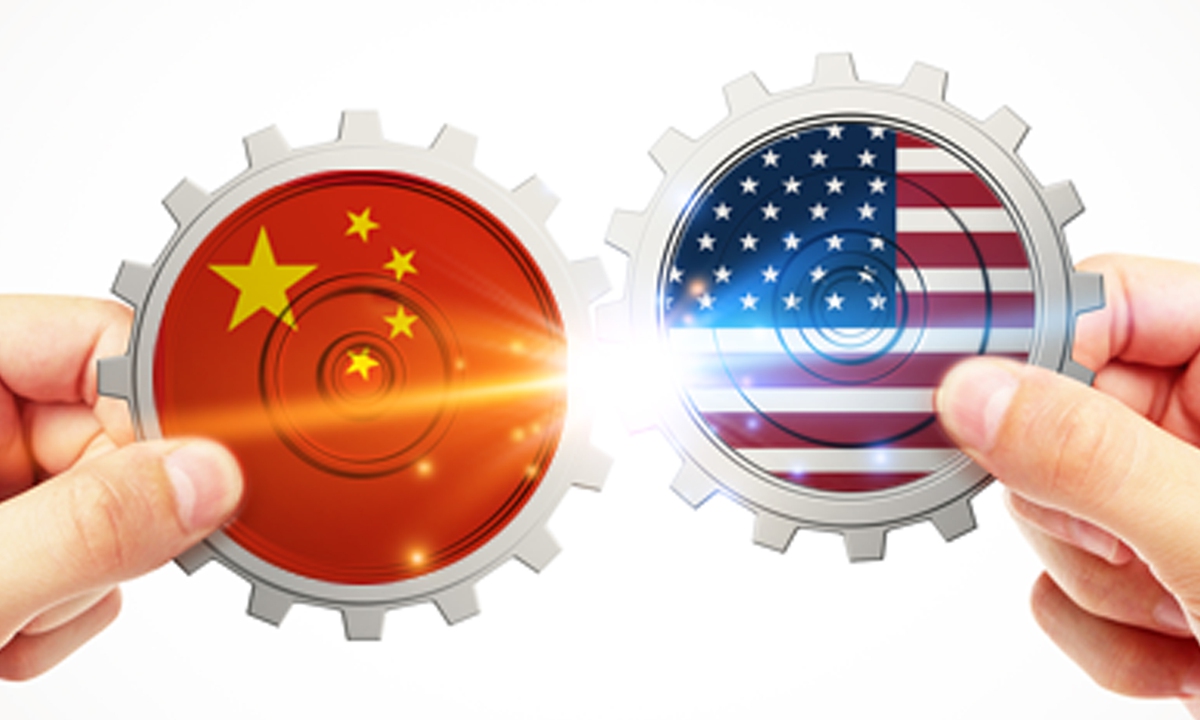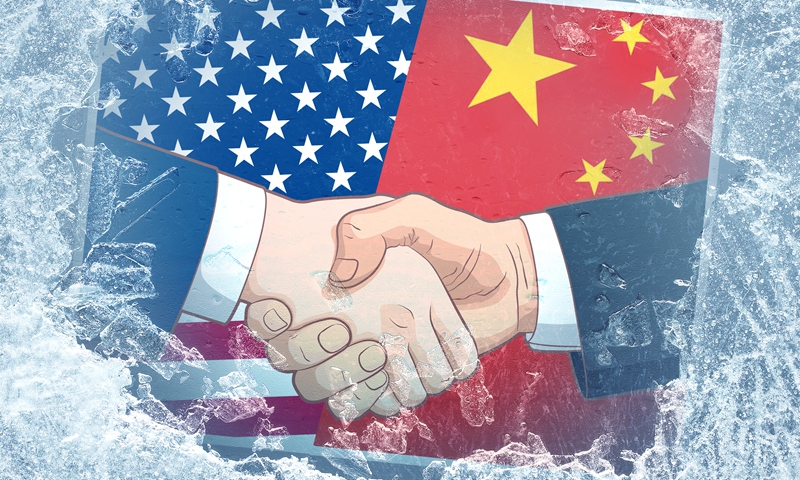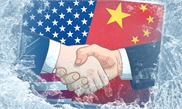
China-US Photo: GT
The phone call made on Tuesday by chief trade talk negotiators from China and the US and the ensuing announcements showed that there is still enough will from the two sides to implement the phase one trade deal, despite doubts that the deal might be on shaky ground after the call was not held at a pre-scheduled time, Chinese analysts said on Tuesday.
They also hinted at the idea of the US loosening its curbs on Huawei, a buyer with huge purchasing power that may help accelerate the implementation of the deal.
Chinese Vice Premier Liu He held a phone conversation with US Trade Representative Robert Lighthizer and Treasury Secretary Steven Mnuchin on Tuesday at the latters' invitation and the two sides had "constructive" dialogue over the phase one deal, the Xinhua News Agency reported on Tuesday.
The call was originally scheduled for August 15, but was delayed. US President Donald Trump later said he had canceled the talk, Bloomberg reported.
The two sides had constructive dialogue on how to strengthen bilateral coordination on macroeconomic policies, and on implementation of the phase one economic and trade agreement. The two sides also agreed to create conditions and an atmosphere conducive to pushing forward with the implementation of the trade deal, according to Xinhua.
Analysts pointed out that this is by far the most positive communication between the two sides in recent weeks amid increasingly strained ties, with no blaming rhetoric used in each side's announcements.
Song Guoyou, director of Fudan University's Center for Economic Diplomacy, said the phone call sent a positive signal to the world.
"The delayed China-US call being eventually held shows that China and the US' trade and economic cooperation centered around implementing the trade deal will continue," said Song.
"[The call] shows both sides still have enough will to continue to implement the phase one trade deal," Song noted.
In addition to the protection of intellectual property, the opening-up of China's financial sectors and the so-called issues around technology transfers, "the parties also discussed the significant increase in purchases of US products by China, as well as future actions required to implement the agreement," read a press release posted on the website of the Office of the United States Trade Representative.
Gao Lingyun, an expert at the Chinese Academy of Social Sciences in Beijing, noted that, judging from the information in the news release, the subtext of both sides agreeing to foster an atmosphere conducive to the implementation of the trade deal could be positive news for Huawei, which is currently under attack from the Trump administration.
As the US presidential election nears, the Trump administration has escalated its crackdown on Chinese technology companies in addition to its efforts at decoupling and adding pressure on issues related to China's core interests such as Hong Kong, Taiwan and the South China Sea.
Notably, the Trump administration's attacks on Chinese short-video platform TikTok and social messaging app WeChat have drawn broad criticism both abroad and within the US.
However, experts have hinted that the one Chinese tech company that might be involved in the trade deal talk is Huawei, not TikTok nor WeChat, as the latter pair are not related to trade in theory.
The trade deal requires China to buy $77.7 billion of US manufactured goods within two years.
"Whether or not the US eases its purchase ban order on Huawei is related to the effective implementation of the phase one trade deal. The Chinese telecommunications giant alone purchases about one-third of all Chinese imports of US manufactured goods by value," Gao said, predicting there will be some change regarding Huawei.
Huawei purchased $18.7 billion worth of US products in 2019.

China US Photo: GT
Deal 'precious'
Experts said despite that Trump is appearing to be "tough" on China in front of his supporters, it is the US side that is more willing to see the successful implementation of the deal.
The US badly wants the deal to move forward , said Gao, who has been closely following the trade negotiations. "This is one of the few existing presentable talking points the Trump administration can use to appeal to its supporters."
Gao noted that the deal, according to its text, can be dissolved automatically within 60 days at the request of one party. "The deal is made precious by the current strained ties between China and the US, as in that both countries - the government and the people - can accept it."
Analysts said the continuation of the phase one deal has exposed that the hyping about decoupling by some in the US is unrealistic and the fact that China became the top trading partner for the US during the pandemic further highlighted the real-world demand of economic and trade cooperation between the world’s two largest economies.
The continued implementation of the phase one deal will further grow the base for China-US trade and economic cooperation, making decoupling increasingly difficult, analysts said.
China has been ramping up its purchase of US agricultural products and energy products especially in recent months, despite the COVID-19 pandemic that has disrupted normal trade flows.
In the first seven months of this year, China's trade with the US reached 2.03 trillion yuan ($293.7 billion), down 3.3 percent year-on-year, Chinese customs data showed.
From August 7 to 14, China has also been active in importing US soybeans, buying 2.3 million tons, according to the US Soybean Export Council.
Speaking at the Republican National Convention on Monday, Trump said US farmers are doing well and China is "ordering more corn than we've ever thought possible."
"And now I have farmers calling me up, 'Sir, we love China very much. Please don't be too tough on them,'" the US President told his supporters.


